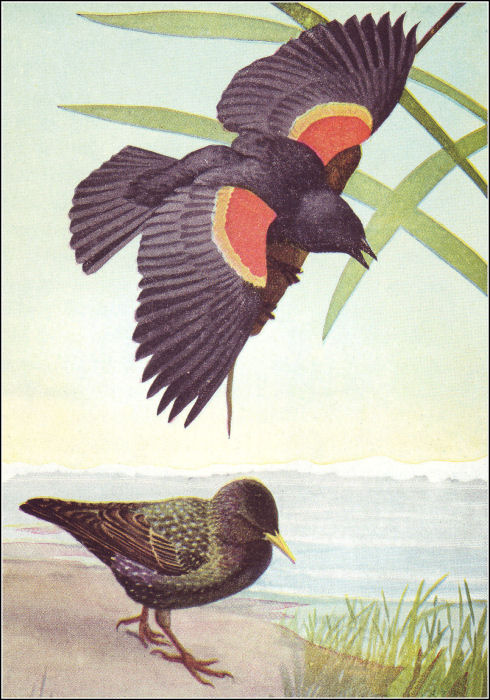The Aesop for Children by Milo Winter
The Shepherd Boy and the Wolf
A Shepherd Boy tended his
master's Sheep near a dark forest
not far from the village. Soon he
found life in the pasture very dull.
All he could do to amuse himself
was to talk to his dog or play on
his shepherd's pipe.
One day as he sat watching
the Sheep and the quiet forest,
and thinking what he would do
should he see a Wolf, he thought
of a plan to amuse himself.
His Master had told him to
call for help should a Wolf attack
the flock, and the Villagers would
drive it away. So now, though
he had not seen anything that
even looked like a Wolf, he ran
toward the village shouting at
the top of his voice, "Wolf! Wolf!"
As he expected, the Villagers
who heard the cry dropped their
work and ran in great excitement
to the pasture. But when they got
there they found the Boy doubled
up with laughter at the trick he
had played on them.
A few days later the Shepherd
Boy again shouted, "Wolf! Wolf!"
Again the Villagers ran to help
him, only to be laughed at again.
Then one evening as the sun
was setting behind the forest and
the shadows were creeping out
over the pasture, a Wolf really
did spring from the underbrush
and fall upon the Sheep.
![[Illustration]](http://www.gatewaytotheclassics.com/gold/books/winter/aesop/winter_aesop_zpage024.gif)
In terror the Boy ran toward
the village shouting "Wolf! Wolf!"
But though the Villagers heard
the cry, they did not run to help
him as they had before. "He
cannot fool us again," they said.
The Wolf killed a great many
of the Boy's sheep and then
slipped away into the forest.
Liars are not believed even when they speak the truth.
| 
![[Illustration]](http://www.gatewaytotheclassics.com/gold/books/winter/aesop/winter_aesop_zpage024.gif)